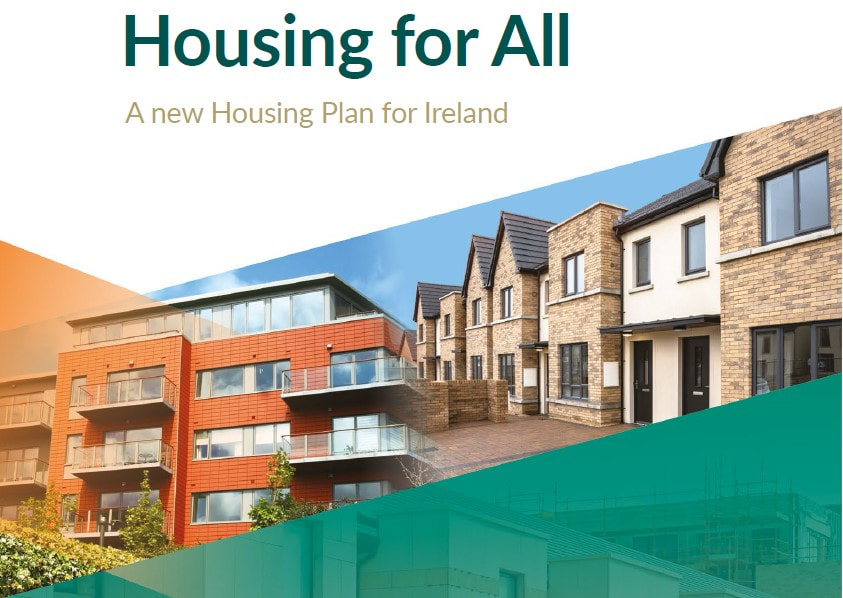|
The National Parks and Wildlife Service (NPWS) at the Department of Housing, Local Government and Housing has appealed to the public not to light fires or barbecues in public places this summer.
As they appeal to the public to exercise renewed care and responsibility when outdoors the National Parks and Wildlife Service has increased ground crews on fire patrol and has ramped up aerial monitoring with helicopters and drones. Minister for Housing, Local Government and Heritage Darragh O’Brien advised: “If you notice a fire, please call the emergency services on 112 immediately. NPWS teams are upping their patrols to identify potential fire incidents and act quickly should one break out. However as we know, prevention is better than cure, and we’re asking all members of the public to avoid lighting fires in open areas.” Minister of State for Heritage and Electoral Reform Malcolm Noonan commented further: “Our National Parks and Nature Reserves, coastal sand dunes, mountains and upland areas, forests, meadows and urban parks are all places where we enjoy spending time in nature, but they are also home to our precious wildlife and their vulnerable young. This is a really important time of year for wildlife, especially vulnerable ground-nesting birds and mammals who are now rearing their young. We all want to get out and enjoy the good weather but let’s do it responsibly - without putting nature at risk.” The Director General of the NPWS, Niall O Donnchú, has also asked for everybody’s cooperation to protect nature and said: “While NPWS has increased ground crews and monitoring from the air this week, we still need to enlist your help to protect nature at this high risk time. We ask that members of the public not light fires or barbecues in any National Parks or Nature Reserves, or indeed in nature generally. We are also asking that the public be vigilant and report any fire activity without delay.” Are you a First Time Buyer? You could avail of up to €100k towards a new home. Join our webinar and have all your questions answered on the schemes available, who qualifies and how to apply.
With Seantor Mary Fitzpatrick and Paul Merriman, askpaul.ie Register: https://www.fiannafail.ie/webinars The Minister for Housing, Local Government and Heritage, Darragh O’Brien has signed the Planning and Development (Street Furniture Fees) Regulations 2023.
The regulations provide for the waiving of the street furniture licence fee for tables and chairs outside a hotel, restaurant, public house or other establishment where food is sold for consumption on the premises. Commenting Minister O’Brien said: “Despite our oftentimes changeable weather we expect to see people enjoying meals outside restaurants and cafés again this summer. “This measure supports the hospitality and restaurant sector by reducing the fee of €125 per table to €0 per table. Similar to previous years there will also be no fee for awnings, canopies and heaters used in conjunction with the tables and chairs. “The continued waiving of this fee this year will again save businesses hundreds of euro this year,” he concluded. The Department of Housing has published its monthly data on the number of Commencements Notices (residential construction starts) for April 2023.
The figures for April show a 10% increase on the same month last year. The strong uptick in commencements in Q4 2022 has continued into 2023, with commencements from January to April at 9,928, this is the highest level of commencements for this period since records began in 2015 and some 6% higher than the same period in 2022 (9,343). Continued waiving of street furniture licence fees for tables and chairs outside a hotel, restaurant, public house or other establishments Amendments to ease the way for Reverse Vending Machines, vital for new Deposit Return Scheme The Minister for Housing, Local Government and Heritage, Darragh O’Brien TD today announced that he was seeking the approval of the Oireachtas to amend Planning and Development Regulations to continue the waiving of licence fees for outdoor dining meaning restaurants, cafés, hotels and pubs across Ireland will save hundreds of euro this year, in 2023. The Minister is also seeking approval for planning exemptions to allow retailers to deliver on the Government’s new ‘Deposit and Return’ scheme for bottles. The waiving of the street furniture licence fee for tables and chairs outside a hotel, restaurant, public house or other establishment where food is sold for consumption on the premises, was first introduced in 2021 with the fee of €125 per table reduced to €0 per table. This extension into 2023 will assist the hospitality sector this year by reducing the cost for maintaining outdoor dining in public spaces. Similar to previous years there will also be no fee for awnings, canopies and heaters etc. used in conjunction with the tables and chairs. With regards to the Government’s new ‘Deposit and Return’ scheme for bottles, the Programme for Government and Ireland’s national waste policy (Waste Action Plan for a Circular Economy) set out the government’s commitment to introduce a Deposit and Return Scheme (DRS) for plastic bottles and aluminium cans and last November a new scheme was launched with a planned go-live date for consumers in February 2024. The scheme encourages people to recycle drink containers and works by charging anyone who buys a drink a small deposit for the plastic bottle or can that it comes in. Customers get this money back when they return the container to a retailer or other collection point to be recycled. To assist retail outlets to be modified to cater for ‘reverse vending machines’ (RVMs) and to facilitate the smooth rollout of the required infrastructure for the Deposit Return Scheme, Minister O’Brien today sought amendments to the existing Planning and Development Regulations 2001 to provide an exemption for the installation, alteration, repair or replacement of RVMs and to insert a new definition of “reverse vending machine” into the principal regulations. Minister O’Brien emphasised: “This year Government are further supporting businesses across the country with another waiver of the street furniture licence fee. The outdoor dining experience has been incredibly popular with the public. For a small café or restaurant this fee can represent another financial burden and hospitality businesses still need our help, so I am delighted to extend the provisions of these regulations for another year. When it comes to reverse vending machines, these planning amendments will help us ensure that we smooth the way to have the necessary infrastructure available for when the scheme begins in February 2024. Ultimately, they will make it easier for people to recycle, and result in changes in consumer behaviour.” Minister of State for Heritage, Malcolm Noonan TD said: “We all have our part to play in tackling climate change and improving our environment. Recycling is one of those activities where everyone has a chance to play a role and I’m looking forward to the start of the new Deposit and Return Scheme introduced by my colleague, the Minister of State for the Circular Economy, Ossian Smyth, TD. Reverse vending machines will make it easier for all to take part and today’s amendments to planning regulations will smooth their roll-out.” Minister of State for Local Government and Planning, Kieran O’Donnell TD added: “Small businesses are the backbone of local economies and I’m delighted that we are extending this important support for hospitality businesses. I hope that even more businesses can avail of the opportunity to offer outdoor dining – benefitting their operations in the forthcoming summer season and enlivening our towns and cities.” The Cabinet today agreed the publication of the Residential Construction Cost Study, a joint initiative of the Construction Sector Group and the Government under the Housing for All strategy. The study promotes measures for a reduction in residential construction cost and increased standardisation in residential construction activities.
The study is another component of the Housing for All plan – specifically dealing with productivity, cost reduction and innovation in the construction sector to help make the delivery of housing more economically sustainable in the long-term. These actions complement a range of other actions in Housing for All to help achieve economic sustainability including the development of Modern Methods of Construction and the establishment of ‘ConstructInnovate’, the new construction technology centre hosted by University of Galway. Welcoming the report, Minister for Housing, Local Government and Heritage, Darragh O’Brien, said: “While we are focused on many of the immediate challenges we are facing in housing, we are also committed to developing a long term robust construction sector which develops an improved and sustainable housing market in terms of volume and value. This report is an important contribution to that work. “I’d like to thank all from the Construction Sector – including representatives from the Society of Chartered Surveyors of Ireland (SCSI), Royal Institute of Architects of Ireland (RIAI), Construction Industry Federation(CIF) and Local Government Management Agency LGMA), the Construction Sector Group (CSG) – and the wide range of industry, local government and public sector participants who gave their time and expertise to this study and I look forward to continuing collaboration with them throughout the development and implementation of these actions.” With regard to residential development, construction costs consisting mainly of direct materials and labour account for about 50% of total development costs. This study is focused on the construction costs only and acknowledges work which has been done, and further work to be done, in examining the other 50% of development costs, which as sometimes referred to as soft costs (e.g. site acquisition costs, professional fees, cost of financing, margins, VAT, marketing). The study undertook an international comparative approach using four Irish case study projects – a semi-detached three-bedroomed scheme house, a suburban apartment building, an urban apartment building and a purpose-built student accommodation building. Costs in Dublin were compared with Birmingham, Berlin, Copenhagen and Utrecht. A number of findings were made and are detailed in the full report, along with recommendations and actions for implementation. When costed in the European comparator cities the cost of constructing the same apartment was broadly the same. The cost of building the same house was 15% less in Birmingham. Proposed actions to reduce construction costs are related to specification (standardisation, typologies and finishes) and scope of works (fixtures and fittings, appliance etc.) and size and are laid out in detail within the report. A collaborative approach with industry to develop standardised approaches for housing design and construction which can inform the design of policy initiatives and be used as best practice by industry is proposed by the actions to realise the cost reduction opportunities identified by the report. The report can be accessed here: https://www.gov.ie/en/publication/2bf87-residential-construction-cost-study-report/ |
NEWSArchives
November 2023
|



